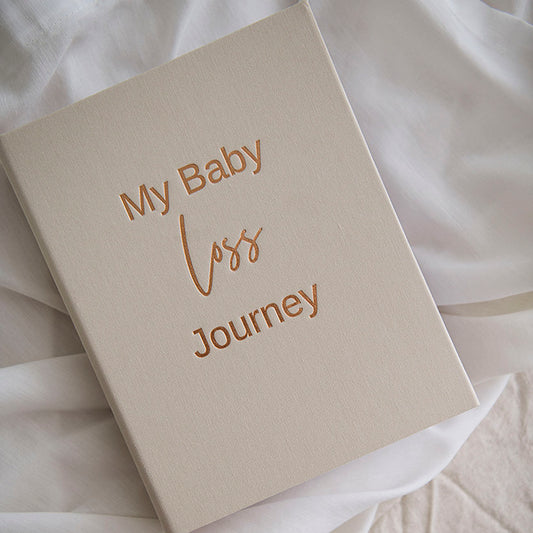By Dr. Justin Coulson - Co-host and parenting expert on Channel Nine's "Parental Guidance" and the founder of happyfamilies.com.au
This is an article about parenting – but to begin, we need to talk about cows.
In Hindu society, cows hold a lofty and sacred position. To harm a cow is horrendous. To slay one: sacrilege.
In this article we slay a sacred cow of parenting: praise. And there’s a good chance you’re going to hate this. It seems wrong. That’s how slaying sacred cows feels.
Here’s the scenario.
Our child accomplishes something and we automatically hear the words coming out of our mouth:
Good job
Great sharing
Nice helping
Awesome work
You’re a star
We’re sincere. And our motivation is pure: share our enthusiasm with our child because they did something worth acknowledging.
It seems to work too. Our kids smile. They’re motivated… But motivated by what? Are they doing the activity because they want to? Or are they doing it because they want more praise?
The provocation here is simple:
What if praise doesn’t work?
What if it undermines the very thing we think we are encouraging?
Praise can be perilous. Here are 7 reasons why:
Praise undermines motivation
You sign up for a science experiment. The researcher hands you a booklet and asks you to work on some problem-solving tasks. They’re easy, and you score 10 out of 10. You hear them praising you:
“Wow, you’re so smart. Good job. You scored 10 out of 10.”
They hand you another booklet with 10 more problems to solve. These are hard. You score a zero. This time, no praise. Just a zero.
They explain: “One last set of problems. Would you like a set like the ones you did first or the ones you did second.”
What do you choose?
In the late 1990s, renowned Stanford psychologist Professor Carol Dweck (of Mindset fame) conducted experiments just like this with primary school-aged kids. Setbacks and failures following praise led to children choosing easier tasks when given a choice about what to tackle in a subsequent task. And they underperformed the second time around! (I ran similar research at the University of Queensland with undergraduate students and obtained the same results).
Praise feels good in the moment. But when someone tells you you’re great and then you’re confronted with ensuing evidence to the contrary, you question your performance, your capability, and even your identity. Motivation for challenge drops. Saving face is all that matters, so ‘smart’ kids choose easy tasks they know they can do well in rather than challenge themselves.
Praise crushes creativity
To be creative, you have to take risks, explore new ideas, and be innovative. Creativity can be risky business.
Conversely, fear of evaluation leads to high-probability plays. No one wants to take the hard road or experiment when the stakes are high. Praise increases the pressure, it promotes a fear of failure and a desire to meet expectations.
You can’t pursue both creativity and praise. Praise reduces risk-taking. Skilled performance declines. Children pursuing praise take the safe option.
If kids care too much about the evaluations of others, they probably won’t swing for the fence. Wanting the approval of others leaves people less focused on their task, and ultimately playing a smaller game.
Praise feels controlling and judgey
In a park I overheard a mum tell her little boy “good climbing.” A few moments later it was “good running”. Not 20 seconds later: “great swinging”. He lifted his sister onto a platform and she sang, “nice helping. Good boy.”
Her intentions were clear. Reinforce the preferred behaviour. This is why charts exist showing 101 ways to praise your child. But Stanford researchers Mark Lepper and Jennifer Henderlong Corpus point to research showing praise that feels controlling or judgey is perceived as insincere and coercive, and it backfires! Sure, little kids might respond well to it, but as kids grow, it feels icky, and eventually undermines the relationship (and the person’s motivation for doing the very thing they’re being praised for. Moreover, it increases feelings of self-consciousness (and not in good ways).
Praise is about you, not your child
Control is the real motive for most praise. We praise behaviour we hope to see more often far more than we praise genuinely great behaviour.
The deep implication: our child becomes attuned to listening to our voice. To pleasing us. To feeling that our regard for them is conditional on how they act. They tune out their own moral compass, their own inner voice, so they can tune in to ours.
They live their life oriented towards who’s outside of them and judging them more than what they feel, see, and say inside.
Praise creates competition
When Abbie is praised for being a gifted singer and Ella is praised for being a talented sports star, all Abbie hears is that she’s no good at sports and all Ella hears is that she can’t sing.
Ironically this may lead to increased effort and motivation – but it’s poorly directed. Abbie should work to her strengths and not try to be like Ella (and vice versa). But both may also fear they can’t live up to the praise they’ve received and become insecure about their abilities since that is what they are judged on.
Praise infers low ability
In a series of studies conducted with young children (aged 5-7 years) a praise paradox was found. Praise led to the inference that if you’re receiving praise, the person giving that praise doesn’t think you’re very good at something – or otherwise they wouldn’t have to praise you.
Imagine saying to your child, “Wow, this broccoli is incredible. Amazing. The best I’ve tried. You’ve got to taste the broccoli. It’s going to blow you away.” What’s your child thinking? Probably “Hmmm, if you’re selling the broccoli that hard it must be gross. I’ll stay away.”
The paradox of praise is that it does precisely the opposite of the thing we want it to do. This is a major problem because:
Praise hurts the ones who need the most help
Who gets the most praise? Kids with low self-esteem, additional needs, or those who are struggling. Studies show that we give the most effusive praise to the kids who ‘need it most’ and unfortunately they understand that this is precisely what we’re doing. And the more evaluative and inflated the praise, the more judged a child feels and the greater the negative impact.
Last point: parents give the most inflated praise to kids with the lowest self-esteem… at least twice as much, in fact. Which means the kids who ‘need it most’ are getting it, and it’s making them feel even worse as they ascribe lower and lower ability to themselves.
And worst of all, it doesn’t stop them looking externally for validation. They seek more of it.
The sacred cow is slain. There’s a mess to clean up.
What do we do if we’re not supposed to praise? Should we just remain stonefaced and silent in every interaction with our kids?
Here are four alternatives to “good job” that will actually do good for our kids.
Express Thanks
When a child tidies a room, say thank you.
Want more?
Say what you see: “I just walked into the room and I’m blown away! Everything’s been put where it belongs. Thank you. I appreciate it when you help out without being asked.”
When a child shares with a sibling, express gratitude.
Want more?
Say what you see: “I saw you being kind to your sister earlier. Made me grateful for you. Thanks for sharing with your sister.”
Encourage Empathy
When a child chooses kindness, discuss the impact of that decision on others.
For example: “When you took that drink to your brother, how did it make him feel? How did it make you feel? How did it make our family feel?”
Perspective taking increases prosocial patterns of behaviour.
Invite them to hear their own Inner Voice
Your child bursts into the house, shouting that she received an A on an assignment. Rather than praising, pause and invite her to tell you how she feels about it and how she attained it.
First, say what you see. Then open up an active conversation that constructs and builds support and internal/self-evaluations.
“You seem so pumped! An A is a really big achievement right? How are you feeling?... How did you get the A?... What’s the plan so you can keep scoring these kinds of grades?”
Apply the same pattern when the news is bad. Bring your child’s voice into evaluations, not yours. Guide them to determine how they did.
Be supportive
Phrases that are not praise, but do promote support include:
You’ve got this.
I believe in you.
I love watching you learn and grow.
I’m here for you if you get stuck.
Every time I see you do something like this, I’m so grateful for how you live your life. (Even when things don’t turn out.)
You’re not a bad parent if you praise your kids. There are many, many worse things parents can be doing.
And it’s true that when we do praise, we’re doing it with the best of intentions.
But if our intentions are as good as we believe (and I know they are), let’s find more thoughtful and encouraging, less coercive ways of letting them know just how capable, creative, and amazing they are.











































